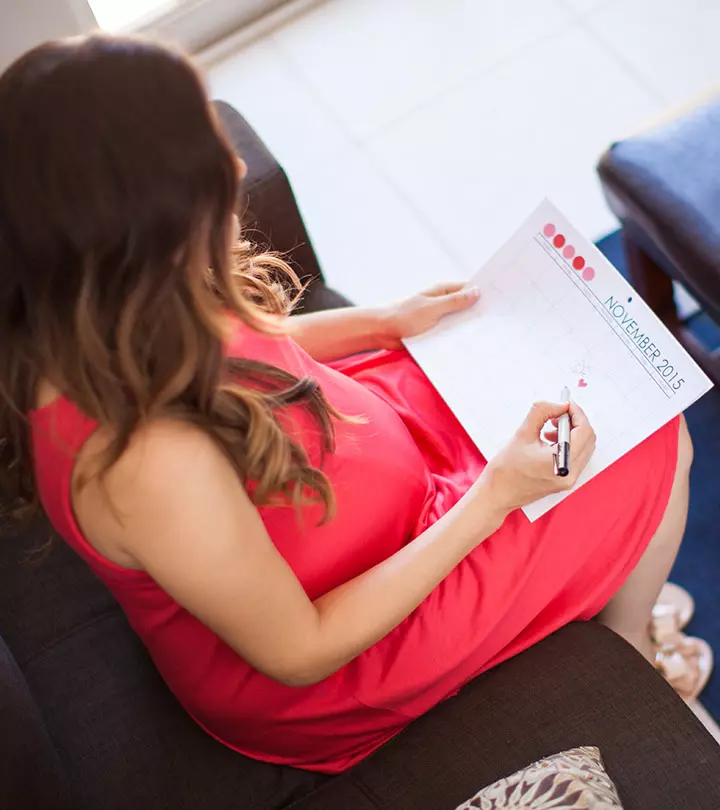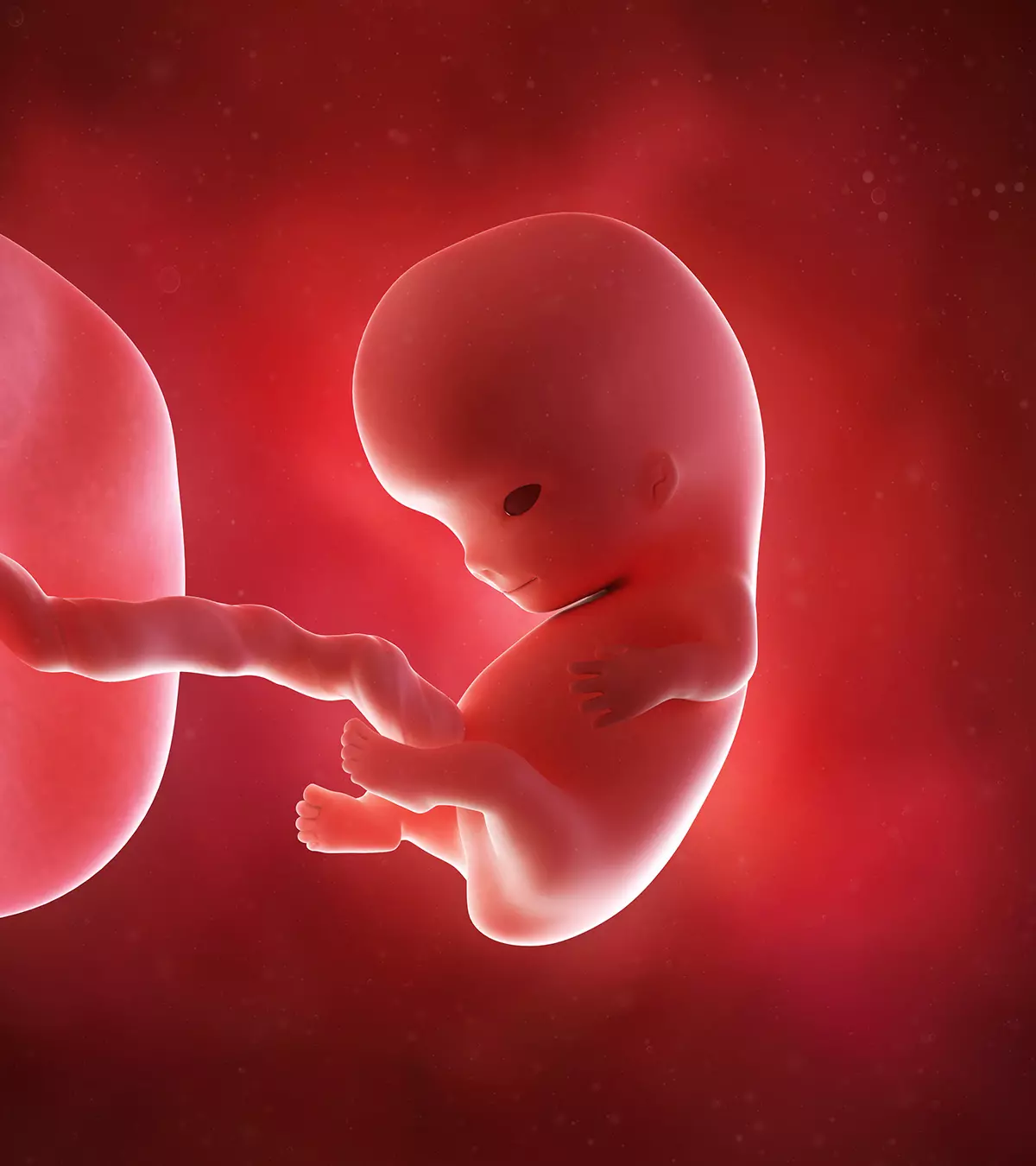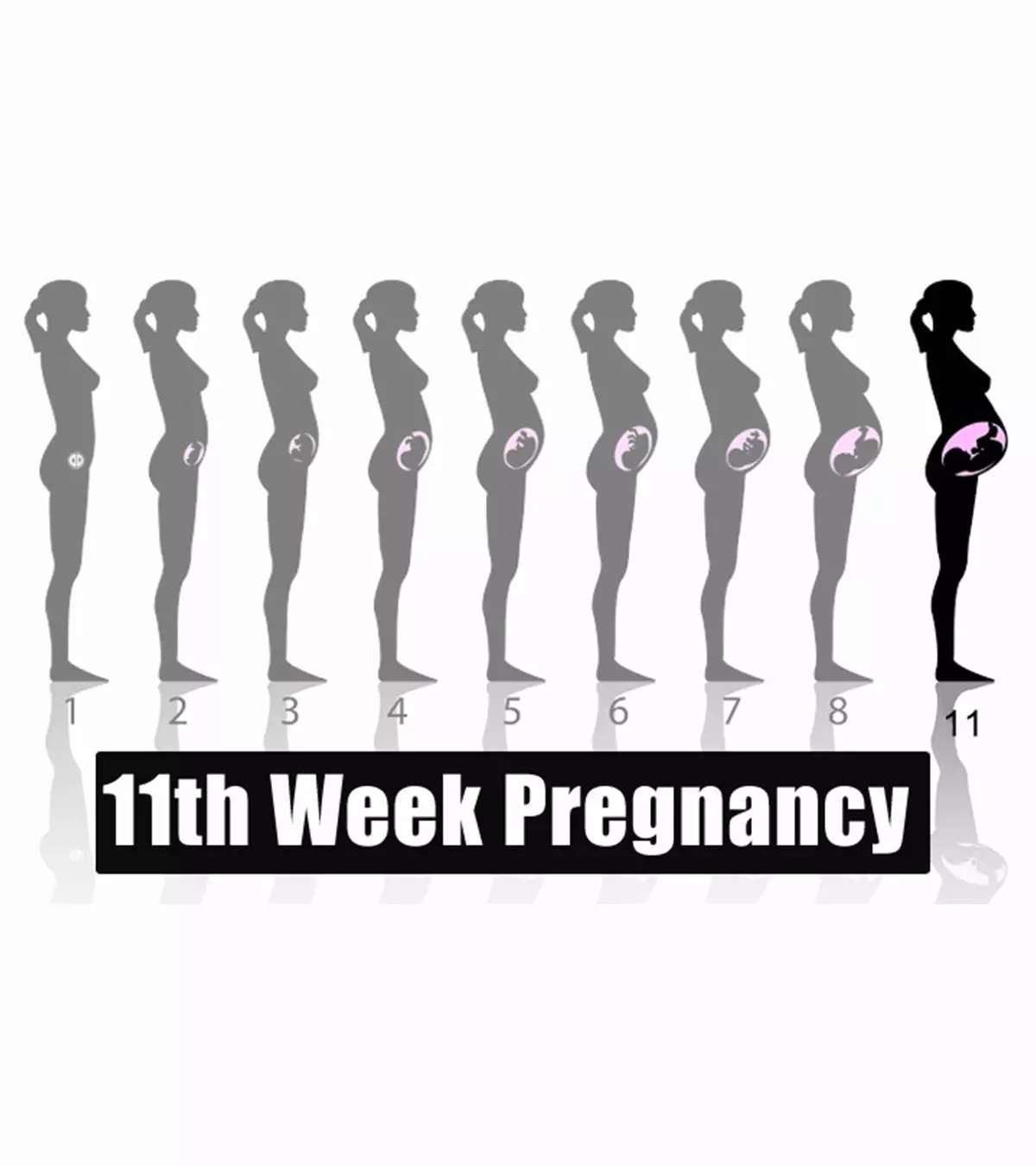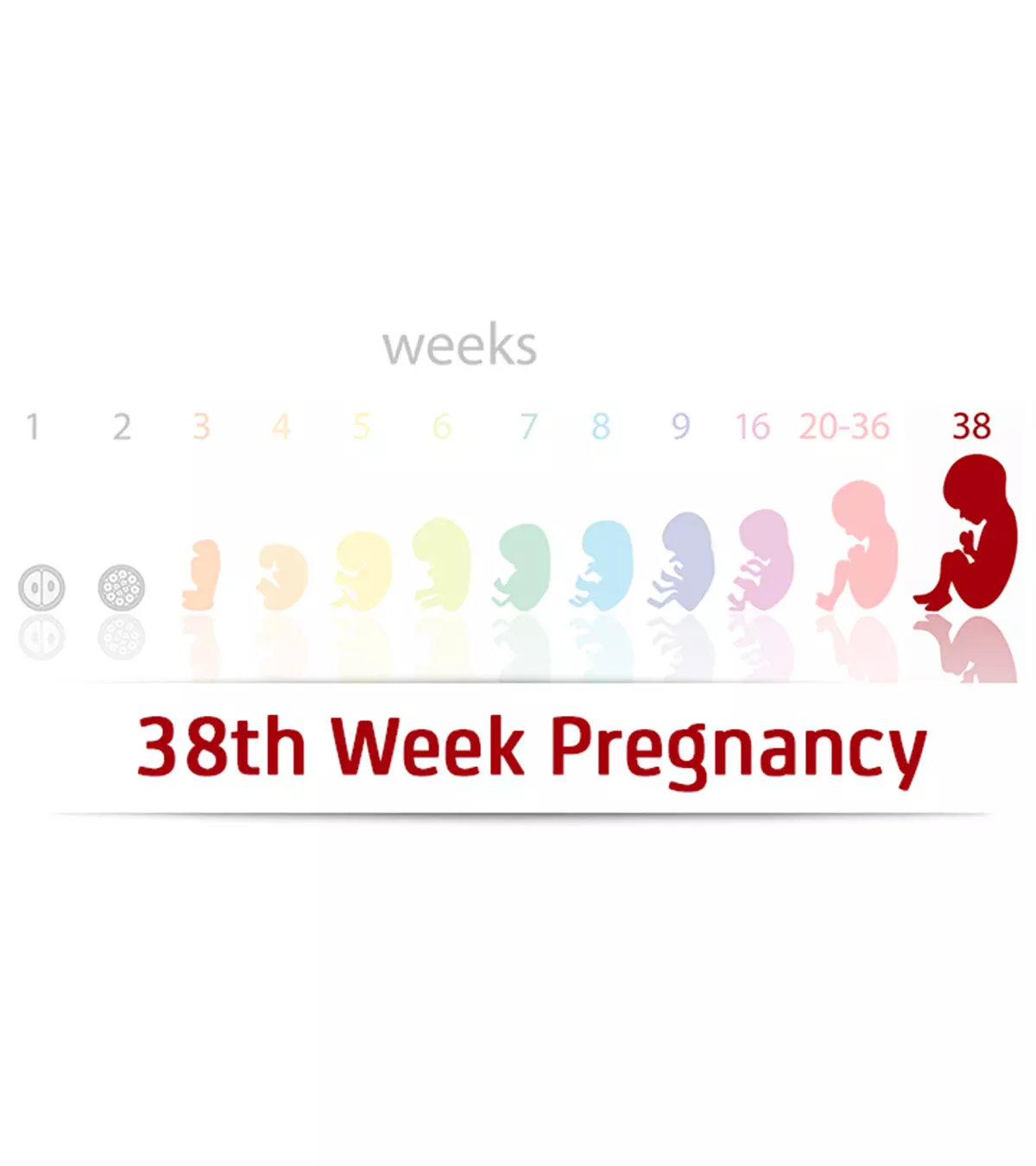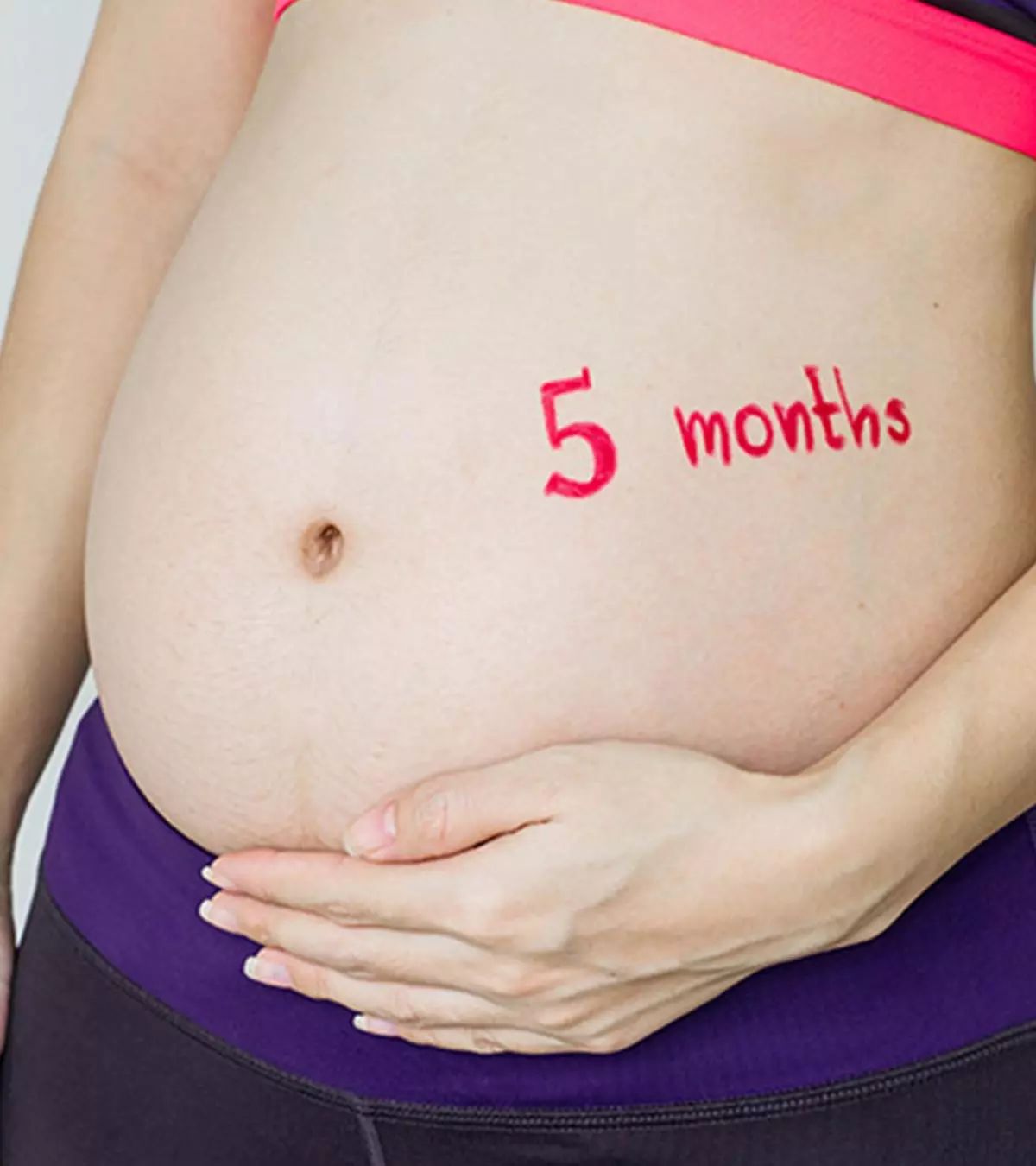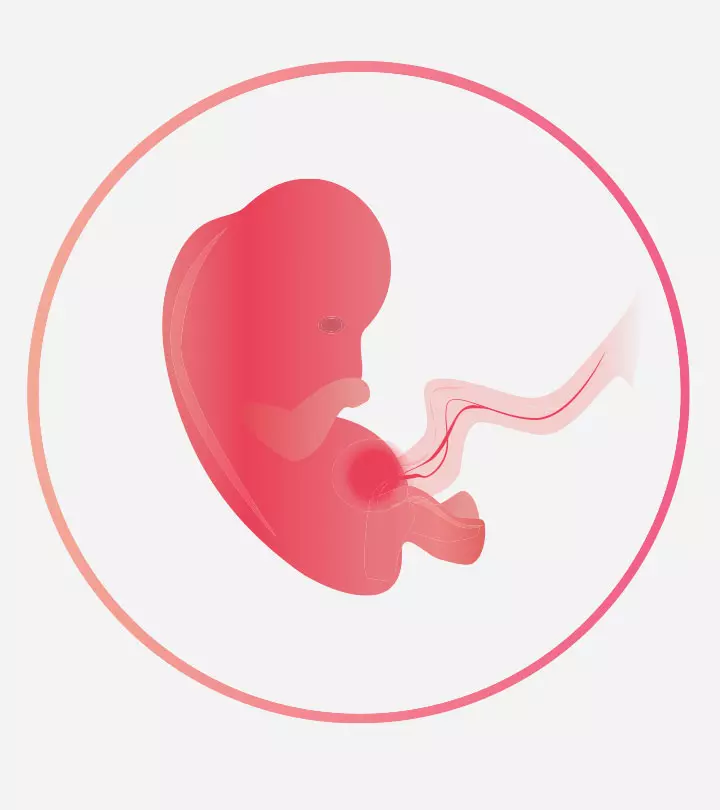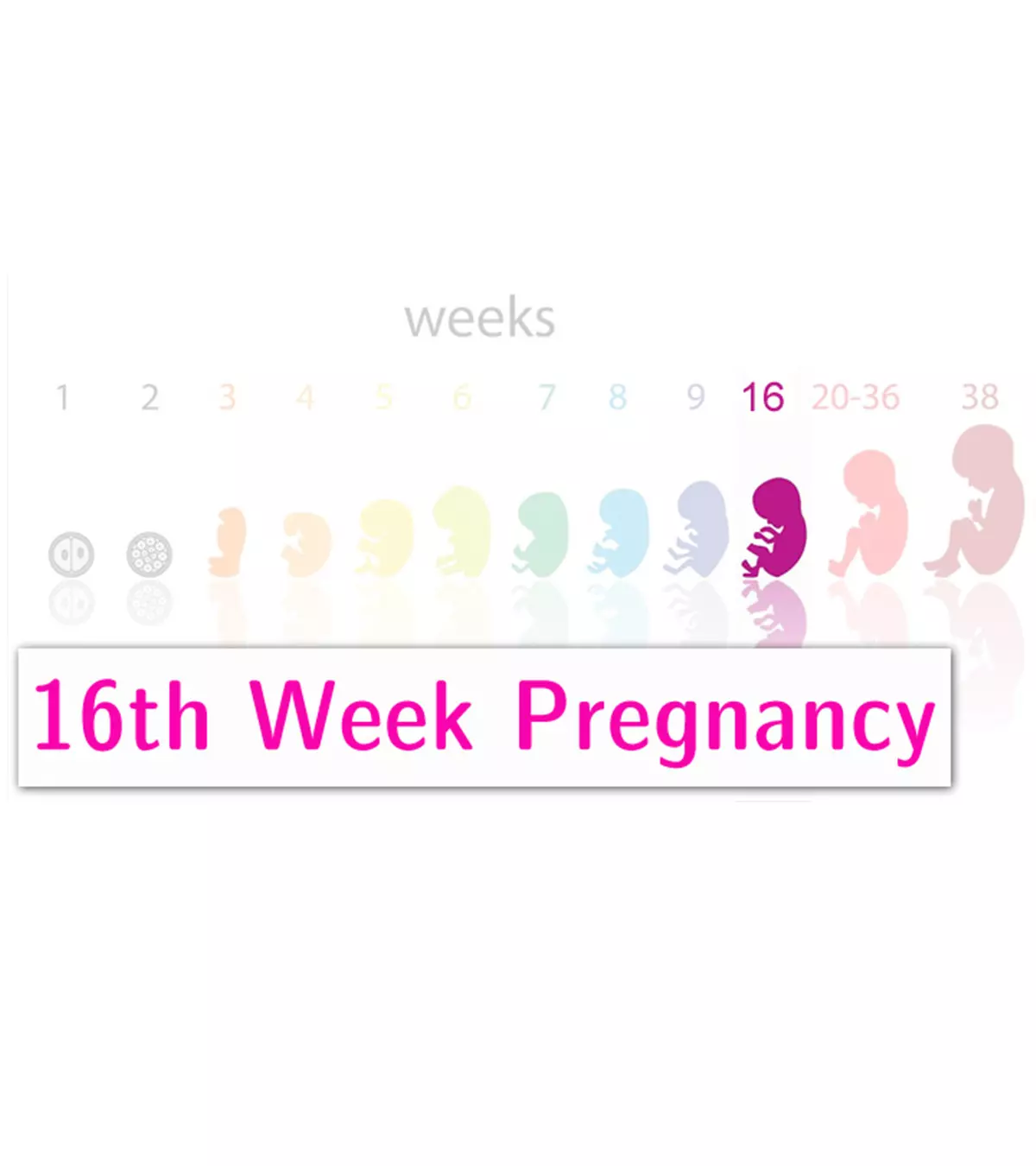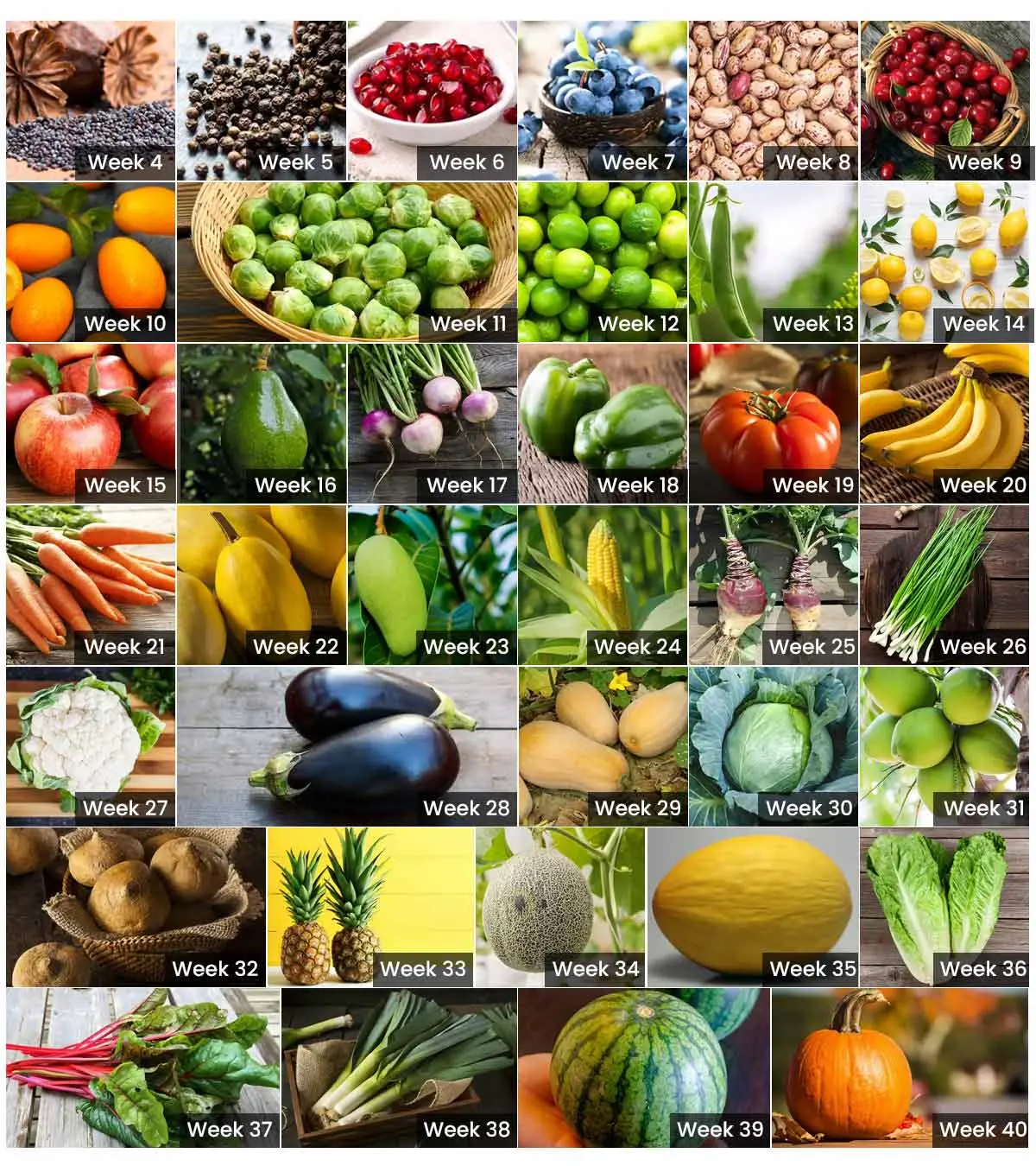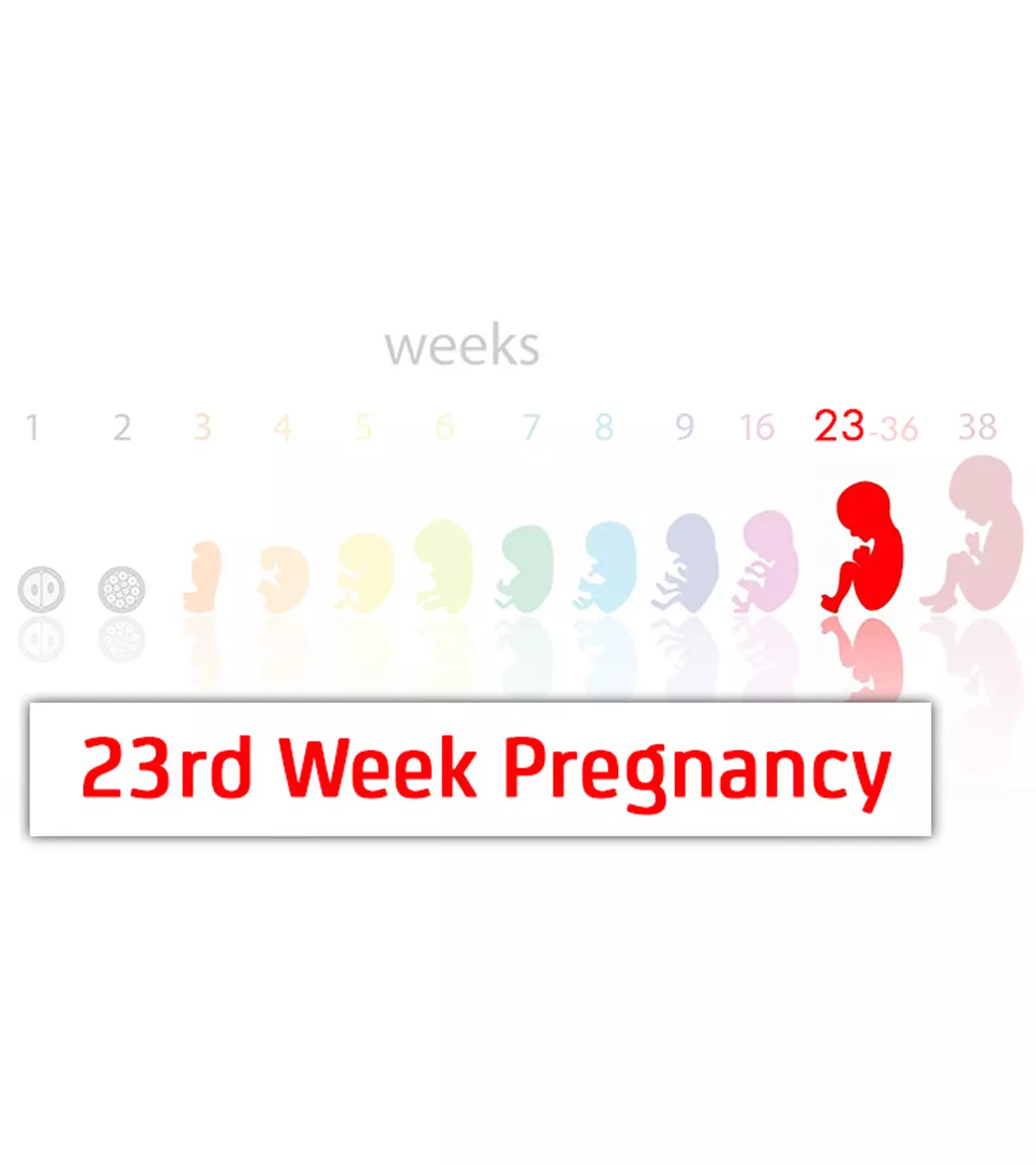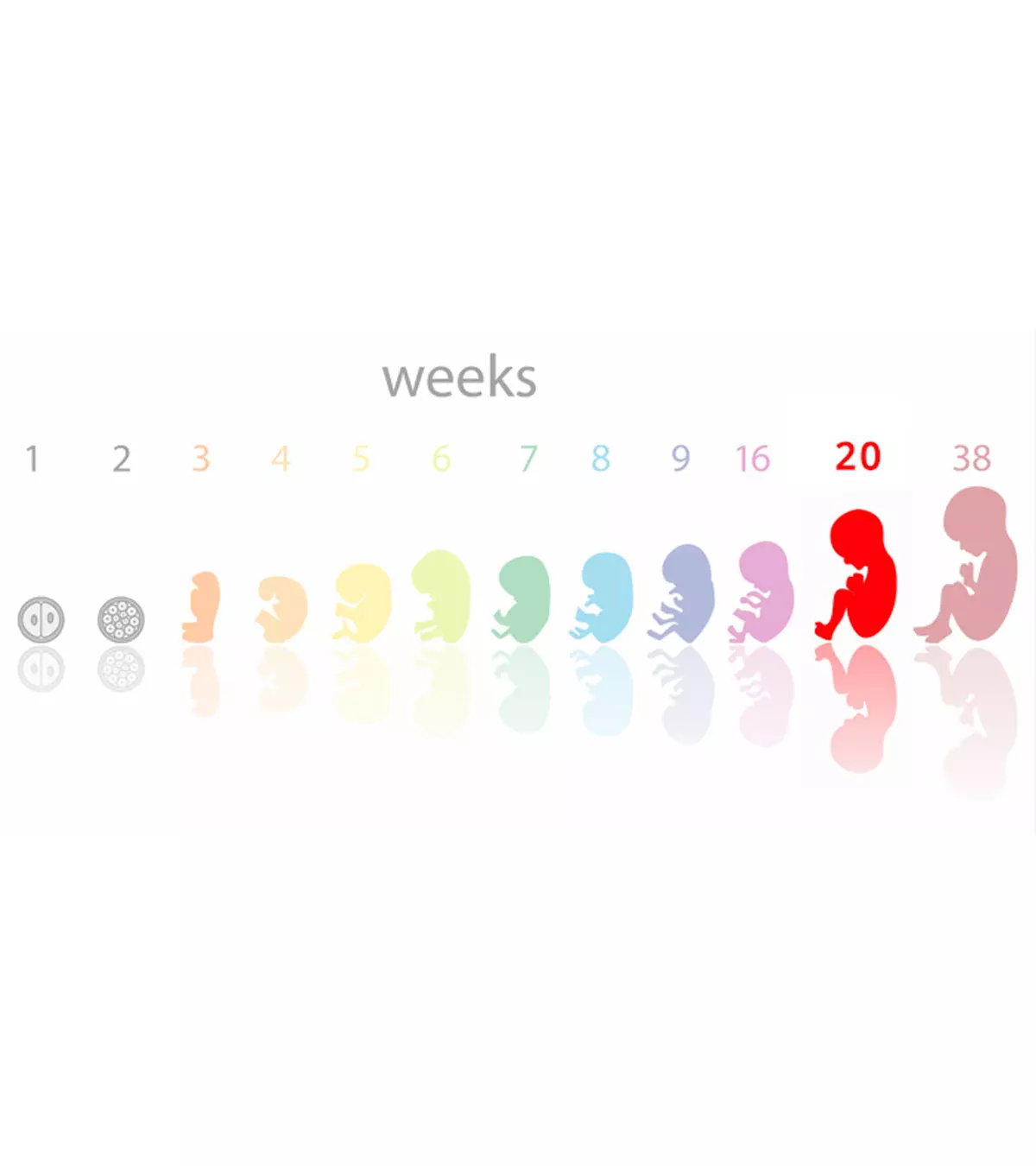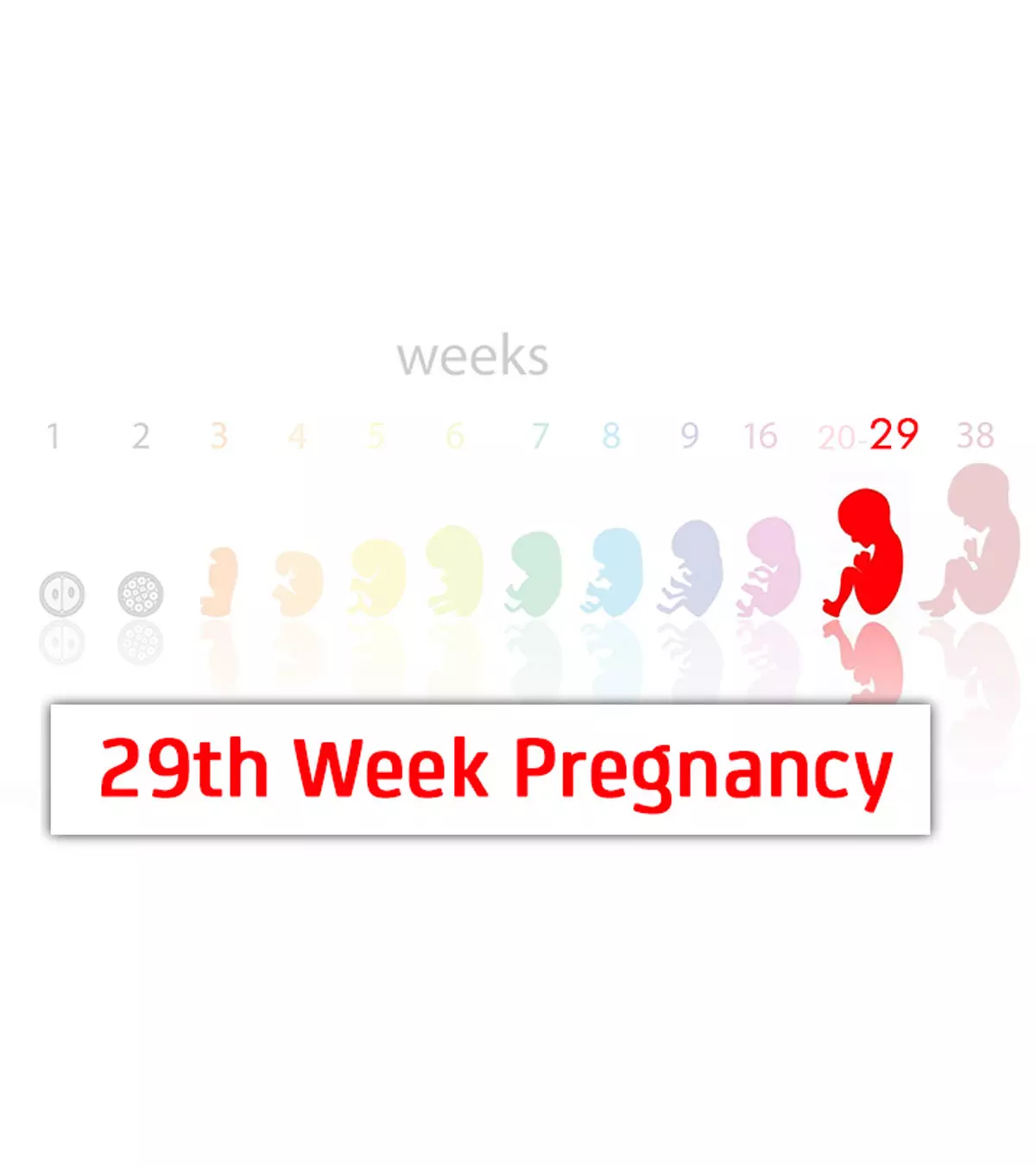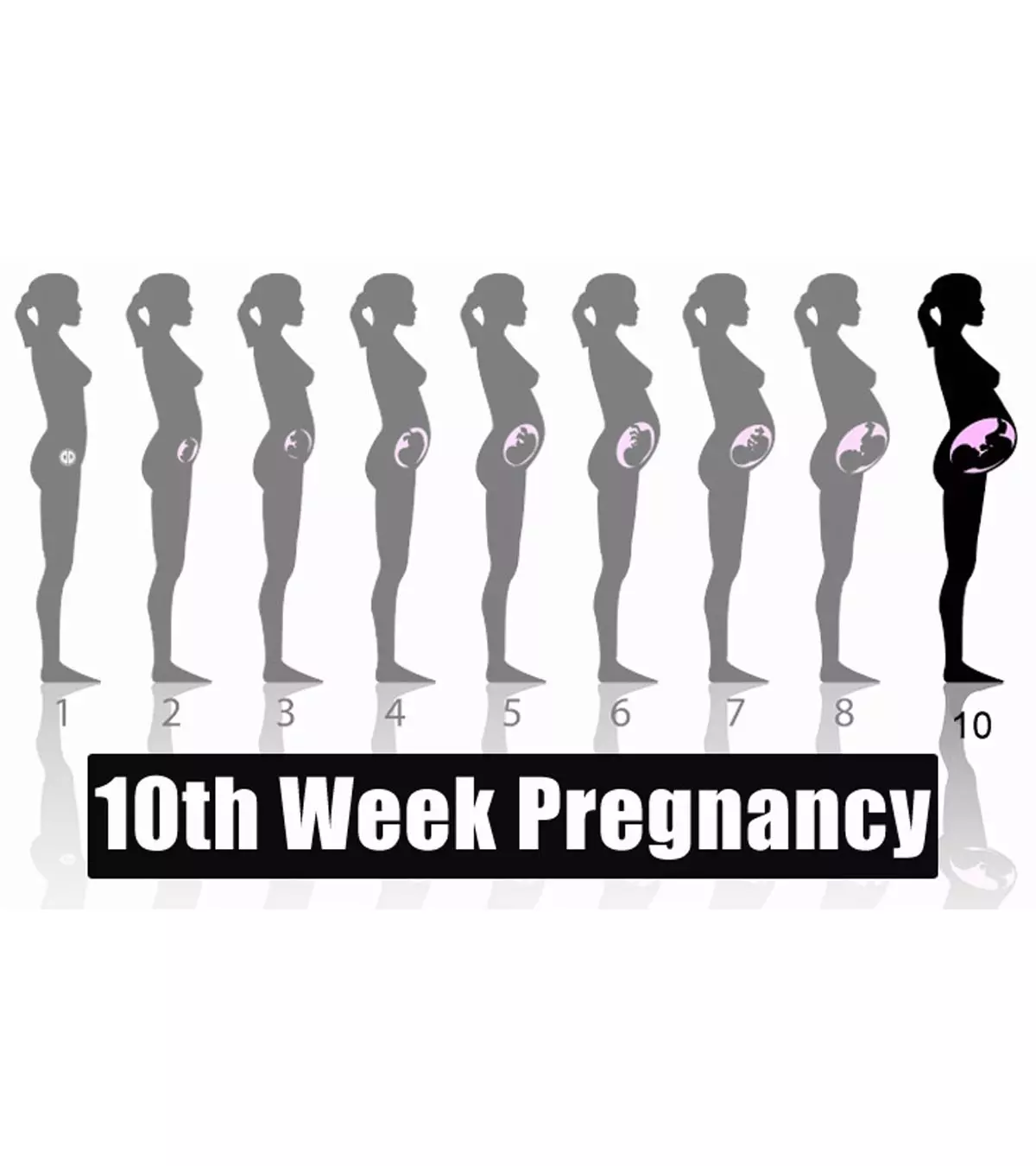
Image: iStock
Pregnancy brings about a lot of changes. You will go through significant physical and mental changes that are essential for the health and well-being of both you and your unborn child. Every day, your body expands to provide an appropriate environment and space for your unborn child inside your uterus. Knowing how your unborn child will develop inside you from conception to birth is a fantastic experience.

This post will give you a week-by-week summary of pregnancy and record the fantastic journey you’re about to embark on.
Key Pointers
- The fetus progresses from a single cell to the development of organs, body hair, and a heartbeat throughout pregnancy.
- Understanding the changes in each trimester can help plan for a safe and comfortable pregnancy.
- The embryo progresses from two layers of cells to develop fingers, nerve cells, eyelids, and knees in the first three months.
- Through the sixth month, the fetus develops fat, hair, and nerve pathways in the ears, and undergoes skeletal hardening, sensory development, and feature formation.
- In the last trimester, the fetus gains more fat, becomes rounder, and has fully developed and functional organ systems.
Your Unborn Baby’s Development: Pregnancy Week By Week
Here is a detailed look at how your unborn baby will develop inside you each week from the time you conceive:
1. The first month
In the first month of your pregnancy, your unborn baby will just be an embryo made up of two layers of cells. The two layers will later develop into your baby’s organs and body parts.
The 4th week
Here is how your unborn baby will develop in the fourth week, in the first month of your pregnancy:
- In the first month, your unborn baby is just a tiny embryo. In fact, your unborn baby is just two layers of cells that will later develop into the various organs and body parts. The two layers are known as the epiblast and the hypoblast.
- At this stage, your amniotic saciA sac containing fluid to protect a fetus in the womb. will get ready for its upcoming role, when it will have to envelop your baby to keep your baby safe. Your unborn baby will spend all the time during pregnancy in your amniotic sac.
- The cells in your primitive placentaiAn organ that develops in the uterus during pregnancy and is responsible for passing nutrients to the fetus through the umbilical cord. will start tunneling towards the lining of your uterus. As a result, it will help to create space so that the blood can also flow in. The blood will help to carry oxygen and nutrients in later weeks to your unborn baby.
- Your yolk saciA fluid-filled sac in the uterus that is responsible for providing nutrients and exchanging gasses with the fetus. will also start producing the red blood cells in your unborn baby and will help to deliver nutrients. It will do so till your placenta gets ready to provide nutrition to the baby.
The 5th week
Here is how your unborn baby will develop in the fifth week, in the first month of your pregnancy:
- By the time you enter your fifth week, you will start noticing that you need to urinate more often and with an increased urgency. It happens because at this time their is an increase in the renal blood flow and an increase in overall body fluid that leads to extra pressure on bladder.
- Your unborn baby is just about the size of a sesame seed right now. Also, your unborn baby has grown from two layers of cells to three, and each layer is folded over the other.
- On the top layer of the cell of your unborn baby, you have the neural tube along the fold. The neural tube will help to develop your baby’s nerves, spinal cord, backbone and the brain.
- The small blood vessels known as villi that help to make your primitive placenta will now help to deliver all the oxygen and nutrition to your unborn baby.
- By now, your yolk sac will also almost be at the end of its role in providing nutrition to your placenta that was in its developing stage till now.
- Your unborn baby will now be inside your amniotic sac and will float in the amniotic fluidiA yellowish, clear fluid in the amniotic sac that surrounds the fetus. , which will increase as the pregnancy progresses.
The 6th week
Here is how your unborn baby will develop in the sixth week, in the first month of your pregnancy:
- By the sixth week, your unborn baby will have tiny hands that will look more like paddles instead of hands. The fingers will still be attached to each other, and by the end of the week, your baby will start moving the hands.
- Your baby will also have tiny feet that will look more like paddles instead of feet. The toes will still be attached to each other, and by the end of the week, your baby will start moving his feet.
- Your baby’s heart will also beat very fast now, almost at double the speed that your heart beats. Also, during this week, your baby’s heart will start forming a clear divide between the right and the left chamber.
- In the sixth week, your baby will also start to develop the tongue and vocal cords.
The 7th week
Here is how your unborn baby will develop in the seventh week, in the first month of your pregnancy:
- In the seventh week of your pregnancy, your unborn baby will grow an eyelid that will cover the eyes halfway through.
- You will now feel a stronger and more urgent need to urinate than you did earlier. The blood in your body is growing at a constant pace, and it will create a lot of pressure on your bladder. As a result, all the extra fluid that accumulates in your bladder will make you want to urinate more and faster.
- In the seventh week, your unborn baby will develop something that will look more like a tail. It will be an extension of your baby’s tailbone and will soon be gone in the coming weeks.
- At this stage, your unborn baby’s intestines will also be growing and form a sort of loop that will gradually turn into the umbilical cord.
2. The second month
In the second month of your pregnancy, your unborn baby will be almost the size of a kidney bean and will be moving a lot, especially in comparison to the first month. Also, during the second month, your unborn baby will develop very distinct fingers that will have webbed fingers.
The 8th week
Here is how your unborn baby will develop in the eighth week, in the second month of your pregnancy:
- During this week, the nerve cells that are present in your unborn baby’s brain will start to branch out. Once that process begins, the nerve cells will start to connect with each other and form the pathways of the primitive neural.
- Your unborn baby’s eyelids will be completely translucent and will almost cover all of your baby’s eyes.
- At this stage, your unborn baby’s hands will also be flexed at the joint of the wrist and will be placed over the heart. The fingers will grow longer as compared to the previous week, but will still have webbing between them.
- Your unborn baby will also develop knees at this stage, and the feet will grow so long that they will almost meet in front of the body.
The 9th week
Here is how your unborn baby will develop in the ninth week, in the second month of your pregnancy:
- Sometime around the ninth week or a few weeks later, your doctor may ask you to go for a chorionic villus sampling (CVS)iA prenatal testing to determine genetic or chromosomal disorders in the fetus. in some special situation. If that does happen, the doctor will take cell samples from the very small projections in your placenta that are known as the chorionic villi.
- By the 9th week of pregnancy, your unborn baby will develop earlobes. Your baby’s eyelids will be completely shut now and will not open anymore till you are in the 27th week of pregnancy.
- At this stage, your unborn baby’s fingertips will also be a bit bigger as the touch pads will be developing.
- Your unborn baby will now be able to move the limbs, and most major joints in the body will also start to function. Joints in the body such as the shoulder, wrists, knees, elbows, and ankles will also be almost developed by now and start working.
The 10th week
Here is how your unborn baby will develop in the tenth week, in the second month of your pregnancy:
- During the tenth week, your unborn baby’s brain will start to develop at such a rapid pace. As a result, your baby’s forehead will bulge a lot and will be placed high up on the head.
- Your unborn baby’s fingers will not be webbed any longer but will be entirely separated, with the fingers becoming individual entities. Also, your baby will start developing fingernails during this week.
- By the time you are in your tenth week of pregnancy, your uterus will become almost double the size it originally was.
- Blood cells will start developing in your unborn baby’s liver during the tenth week, and as the yolk sac will not be needed anymore to provide nutrition, it will slowly start to fade away.
The 11th week
Here is how your unborn baby will develop in the eleventh week, in the second month of your pregnancy:
- Around the eleventh week, your unborn baby’s bones will slowly start to become harder.
- Under your baby’s gums, small tooth buds will start making an appearance that will later develop into your baby’s first tooth after birth.
- The eleventh week is also the time around when your unborn baby may slowly learn how to open and close the fists. It will either happen sometime in this week or very soon in the following weeks.
- Even by the eleventh week, your unborn baby’s skin will be extremely transparent, so much so that all the blood vessels that run inside will be visible.
The 12th week
Here is how your unborn baby will develop in the twelfth week, in the second month of your pregnancy:
- The twelfth week is the final week of your second month of your pregnancy. By this time, your unborn baby’s ears will come closer towards the position where they will be permanently placed on the side of the head.
- As compared to the last few weeks, your baby’s eyelids will become less transparent, and the eyes will also shift a little closer, in preparation to being set where they will permanently be placed on the face.
- The intestines in your baby’s system have grown at a very fast pace till now so that they were protruding into the umbilical cord. By the 12th week of pregnancy, your unborn baby’s intestines will finally start to go back and settle in the cavity that is present in your baby’s abdomen for now.
- The fundus, or the top portion of your uterus, will now start to move higher and above your pelvic bones. As a result, you will notice the thickening and widening of your waist sometime around this week.
 Quick fact
Quick fact3. The third month
By the time your baby reaches the third month of pregnancy, your baby will be almost three inches in length and will weigh almost an ounce. At this stage, your baby will also develop tiny yet unique fingerprints.
The 13th week
Here is how your unborn baby will develop in the thirteenth week, in the third month of your pregnancy:
- Around the 13th week, your unborn baby’s urinary tract will be able to function on its own. As a result, your baby will now be able to flush out all the amniotic fluid through their urine that they were swallowing till now.
- Your unborn baby’s fingerprints will now be entirely unique and very prominent.
- Also, around this week, your unborn baby’s head will become more proportional to the body. It will now be almost a third of your baby’s total body size.
The 14th week
Here is how your unborn baby will develop in the fourteenth week, in the third month of your pregnancy:
- By the 14th week, your unborn baby’s brain has developed at a very rapid pace. As a result, the various facial muscles in your baby’s face will get a lot of exercise in the form of squinting, grimacing and frowning.
- The arms of your baby were also quite long by now but will soon start getting into a more proportionate length by the end of the 14th week, as compared to the entire body size.
- A very fine covering of hair, known as the lanugo, helps to cover your unborn baby’s body and keep it safe and protected from foreign objects. Around the 14th week, the extremely fine and downy layer of hair will start coming up all over your baby’s body and cover it up.
- By now, the fundus, or the top part of your uterus, will already be above your pelvic bone and, as a result, it will now start to push out your tummy a little, giving it the first appearance of a baby bump.
The 15th week
Here is how your unborn baby will develop in the fifteenth week, in the third month of your pregnancy:
- By the time your unborn baby enters the 15th week of pregnancy, your baby will be very busy while inhaling and exhaling the amniotic fluid. As a result, it will provide a lot of exercise to the air sacs in your baby’s lungs and help them develop.
- Your unborn baby’s eyelids are completely shut and will not open till you reach the 27th week of pregnancy, but your baby will still be able to sense light. If you flash a beam of light towards your tummy, your baby will most likely try and move away from the source of the light.
- Your baby’s legs will also now grow at a much rapid pace than the hands and will grow longer than the arms. By this stage, your unborn baby will be able to move all the limbs and joints.
The 16th week
Here is how your unborn baby will develop in the sixteenth week, in the third month of your pregnancy:
- By the time you enter the 16th week of your pregnancy, your unborn baby’s circulatory system will start working, and the heart will pump almost 25 quarts of blood in a day.
- Your baby will now also develop very distinct toenails.
- At 16 weeks of your pregnancy, your baby’s head will become more erect as compared to the earlier weeks. The pattern of your baby’s scalp will also start to develop now even though the hair will start to grow only later.
4. The fourth month
By the time you reach the fourth month in your pregnancy, your unborn baby will be about five inches long and will weigh about five ounces. At this stage, your baby’s skeleton will also begin to get harder from a rubbery cartilageiStrong, flexible, connective tissue protecting the bones and joints. to a more bony texture.
The 17th week
Here is how your unborn baby will develop in the seventeenth week, in the fourth month of your pregnancy:
- By the 17th week, your baby will start to develop a keen sense of hearing.
- Your baby will also be able to move all the joints, and the skeleton will become harder and bonier instead of the rubber cartilage it was earlier.
- The umbilical cord, which will help to provide all the required nutrition to your baby, will now grow thicker and stronger.
The 18th week
Here is how your unborn baby will develop in the eighteenth week, in the fourth month of your pregnancy:
- Even at the 18th week, your unborn baby’s blood vessels will still be visible through the skin.
- The ears will now be positioned properly and permanently around your baby’s head and will stand out and away from the head.
- At 18 weeks, your baby will be very busy trying to move the arms and legs, and you will soon be able to feel the movements in your tummy if you have not felt them already.
- In the next few weeks, your doctor will schedule you for an ultrasound examination to check how your baby is growing and check your baby’s overall development. At this time, the doctor will also check for any signs of birth defects and will also look at how your placenta is positioned.
The 19th week
Here is how your unborn baby will develop in the nineteenth week, in the fourth month of your pregnancy:
- The 19th week is a very important time for the sensory development of your unborn baby’s brain. At this stage, your baby’s brain will start to form separate areas that will help your baby develop a sense of taste, smell, hearing, touch and vision.
- By this time, your unborn baby will also start having the first appearance of hair on the scalp.
- By the 19th week, your baby’s arms and legs will be in the right proportion as compared to the rest of their body as well as to each other.
- By now, you may start to feel some pain in your lower abdomen which will be caused because the ligamentsiA band of tissues that connect bones, joints, and organs. that help to support the growing size of your uterus will now begin to stretch.
The 20th week
Here is how your unborn baby will develop in the twentieth week, in the fourth month of your pregnancy:
- Around the 20th week of your pregnancy, a sticky and black substance known as meconium will start to accumulate in your unborn baby’s bowel. Meconium is made up of the various secretions from your baby’s digestive system, the amniotic fluid that your baby keeps swallowing as well as sloughed cellsiWaste cells removed from the body. . At the time, it will only accumulate in the bowel and will finally come out of your baby’s system after birth. You will probably see it in the first soiling that your baby will do after birth.
- In addition to the downy layer known as lanugo, your baby’s skin will now become covered with white substance that is known as the vernix caseosa. It is a sticky substance that will help to keep your baby’s skin protected for the long weeks ahead when your baby will be covered in amniotic fluid.
- The fundus, or the top portion of your uterus, will now come to almost the level of your belly button.
5. The fifth month
By the fifth month, your unborn baby’s eyelids and eyebrows will be in their designated place. At this stage, your baby will measure more than ten inches in length if you were about to stretch out your baby’s legs completely.
The 21st week
Here is how your unborn baby will develop in the twenty-first week, in the fifth month of your pregnancy:
- By the 21st week, the eyebrows and eyelids of your unborn baby will be fully developed.
- At this time, you may start to develop varicose veins in your legs. As your uterus is growing a lot now, it will exert a tremendous amount of pressure on the large vein, known as the inferior vena cava. It is the vein that helps to flow out the blood from your legs to the heart.
The 22nd week
Here is how your unborn baby will develop in the twenty-second week, in the fifth month of your pregnancy:
- In the 22nd week of your pregnancy, your unborn baby’s eyelids will remain completely shut. Under your baby’s eyelids, your baby’s eyes will keep developing but the iris, which is the round colored part inside the eye, will not yet have its color pigment.
- Your baby will now start to develop lips that will become more and more prominent. The tooth buds will also develop under your baby’s gums.
- By the 22nd week, your unborn baby’s skin will start to look wrinkled and old and will continue to look like this till your baby gains enough weight to fill out the skin.
- Once you reach your 22nd week of pregnancy, you will most likely start to develop stretch marks as your belly grows more. By now, your abdomen will start to expand a lot so that it can help to accommodate your growing baby comfortably. Your belly button will also pop out any moment now if it still has not.
The 23rd week
Here is how your unborn baby will develop in the twenty-third week, in the fifth month of your pregnancy:
- By the 23rd week, your unborn baby will start getting used to the many loud noises that will keep coming from outside.
- Your baby’s skin will still have a wrinkled and pinkish or reddish look, no matter what the baby’s ethnicity and skin color after birth.
- Now that your uterus is growing so much, it will start to put pressure on those veins that return the blood from the lower part of your body. As a result, you may experience swelling in your feet as well as your ankles, a condition that is known as edema.
The 24th week
Here is how your unborn baby will develop in the twenty-fourth week, in the fifth month of your pregnancy:
- By the 24th week, your unborn baby will start developing distinct taste buds.
- Your baby’s lungs will also develop well and will develop various branches in the respiratory tree. The lung will also start to produce cells that will help to produce a substance known as a surfactant that will help the air sacs present in your baby’s lungs to inflate without trouble.
- By now, the top of your uterus, also known as the fundus, will be almost an inch above the belly button and may look as big as a football.
6. The sixth month
By the sixth month, your unborn baby will weigh almost a pound and a half, and as your baby starts getting that first baby fat, the skin will start to wrinkle less.
The 25th week
Here is how your unborn baby will develop in the twenty-fifth week, in the sixth month of your pregnancy:
- By the 25th week, your baby will start getting baby fat that will help to fill out the skin and make it look less wrinkled, making your baby look more like a newborn.
- Your baby’s hair will also be quite developed by now and will have its texture and color. It is still possible that it may change after your baby is born.
- Your uterus will continue to grow at a fast pace and will put a lot of pressure on those veins that return blood to your heart. As a result, you may sometimes feel dizzy if you lie down on your back for a long time.
The 26th week
Here is how your unborn baby will develop in the twenty-sixth week, in the sixth month of your pregnancy:
- Your baby will start to develop the nerve pathways in the ears and will be able to respond better to sound.
- If you are carrying a baby boy, the testicles will now start to descend to the scrotum for the next two to three months.
- Your center of gravity will now start to change as your body grows bigger and you may feel a lot of pain in your back. Also, the many pregnancy hormones will loosen up your joints and ligaments.
The 27th week
Here is how your unborn baby will develop in the twenty-seventh week, in the sixth month of your pregnancy:
- Now finally in the 27th week, your unborn baby will be able to open and close the eyes that were shut tight till now. Your baby will also start to sleep and wake up at regular intervals.
- During this time, your baby may start sucking on the finger and may also get hiccups, which you may be able to feel occasionally.
- While your uterus continues to grow, you will feel a pressure on your blood vessels that return the blood from your legs. It can lead to the pain that you may start to feel in your legs around this time.
 Quick fact
Quick factThe 28th week
Here is how your unborn baby will develop in the twenty-eighth week, in the fifth month of your pregnancy:
- Your baby’s eyelashes will develop now, and your baby will also be able to turn the head from side to side.
- Fat will also start to accumulate on your baby’s body as the due date starts to arrive nearer.
- By this stage, you will be able to feel your baby’s movements more clearly.
The 29th week
Here is how your unborn baby will develop in the twenty-ninth week, in the fifth month of your pregnancy:
- Your baby’s skeleton will now get almost 200 milligrams of calcium in a day.
- The head will also start growing bigger as your baby’s brain develops and forms the many neurons.
- You may suffer from hemorrhoids at this stage, which are swollen blood vessels in your rectal area. However, these will get better in the few weeks after delivery.
- The growing uterus will exert a lot of pressure on the veins and may make you feel dizzy if you lie down on your back for long.
7. The seventh month
By the seventh month your unborn baby will weigh about three pounds and will be more than 15 inches in length. Your baby will also be able to open and close the eyes and follow any source of light.
The 30th week
Here is how your unborn baby will develop in the thirtieth week, in the seventh month of your pregnancy:
- By now, almost a pint and a half of amniotic fluid will surround your baby and will increase in the next few weeks. As your baby will start getting bigger and take up more space in the uterus, the amount will again decrease.
- Your baby will now be able to distinguish between light and dark.
- Your uterus will keep growing and may make you a little off balance.
 Did you know?
Did you know?The 31st week
Here is how your unborn baby will develop in the thirty-first week, in the seventh month of your pregnancy:
- The layer of fat that your baby will now develop will help to fill out the hands, legs and torso.
- You will feel a tightening in the muscles of your uterus. The contractions, known as Braxton Hicks, will also be more common now.
The 32nd week
Here is how your unborn baby will develop in the thirty-second week, in the seventh month of your pregnancy:
- Your baby may have a light fuzz on the head or a full head of hair by now.
- The toenails and fingernails of your baby will now start to grow properly.
- Your uterus will push up towards your diaphragmi and put more pressure on your abdomen, which can lead to heartburn and shortness of breath.
The 33rd week
Here is how your unborn baby will develop in the thirty-third week, in the seventh month of your pregnancy:
- Your baby’s skin will get clearer and less red.
- The skull will not be completely joined and will still be very pliable, which will be helpful if your baby has a vaginal birth and has to move out of the birth canal.
8. The eighth month
By the eighth month, your unborn baby will weigh about 4 and 3/4th pounds and will be rounder than before.
The 34th week
Here is how your unborn baby will develop in the thirty-fourth week, in the eighth month of your pregnancy:
- By the 34th week, your baby will get more fat on the body that will start to fill out the skin and help in regulating body temperature at the time of and after birth.
- Your baby’s lungs will also be well developed by now and in the case of a birth at this time, your baby will still be able to survive easily.
The 35th week
Here is how your unborn baby will develop in the thirty-fifth week, in the eighth month of your pregnancy:
- The amniotic fluid will be at its peak now and will start to reduce from now.
- Your baby will put on almost an ounce of weight a day starting now.
- By this time, your uterus will reach almost 15 times its original volume and will poke you in the ribs.
The 36th week
Here is how your unborn baby will develop in the thirty-sixth week, in the eighth month of your pregnancy:
- By now your baby will probably come to a head down position and the head may be dropping lower towards your pelvis.
- You may experience more Braxton Hicks now.
The 37th week
Here is how your unborn baby will develop in the thirty-seventh week, in the eighth month of your pregnancy:
- Most of the body hair from your baby’s skin will start to disappear along with some of the whitish substance known as vernix caseosa.
- You may experience more vaginal discharge that may have some blood spots too.
9. The ninth month
By the ninth month, most babies are more than 19 inches in length and weigh about 7 pounds.
The 38th week
Here is how your unborn baby will develop in the thirty-eighth week, in the ninth month of your pregnancy:
- Your baby will now get the color pigment in the iris.
- Your baby’s grasp will develop stronger now.
The 39th week
Here is how your unborn baby will develop in the thirty-ninth week, in the ninth month of your pregnancy:
- Your baby will continue to get more baby fat.
- The outer skin cells of your baby’s body will now disappear and form new skin underneath.
The 40th week
Here is how your unborn baby will develop in the fortieth week, in the ninth month of your pregnancy:
- Your baby’s nails and hair will keep growing till the day of birth.
- There will be soft spots on your baby’s head that will remain for the first year after birth.
The 41st week
Here is how your unborn baby will develop in the forty-first week, in the ninth month of your pregnancy:
- The amniotic fluid will be markedly less now.
- The skin on your baby’s body will start to peel off as a result of being in the amniotic fluid for too long.
With so many changes happening on a weekly basis during prenatal development, it is no wonder that pregnancy is a magical experience. Remember that not all babies may develop at the same pace, so listen to your doctor and understand your baby’s growth and development.
Frequently Asked Questions
1. What week is most critical in pregnancy?
The first 12-13 weeks of pregnancy (the first trimester) are considered the most critical stage since the baby is developing, and the rate of miscarriage and congenital abnormalities are also high (4).
2. What are the most common symptoms during each trimester?
During the first trimester, women experience spotting, nausea, vomiting, fatigue, tender, swollen breasts, increased urination, mood swings, and food cravings and aversions. However, some of these tend to fade as the second trimester approaches, and new symptoms may appear. These include round ligament pains, constipation, enlarged breasts, urinary tract infections, nighttime leg cramps, sensitive or bleeding gums, a dark line down your abdomen, and lightheadedness. As the trimester progresses into the third, the mother experiences heartburn, backaches, shortness of breath, frequent urination, spider veins, varicose veins, or hemorrhoids, and Braxton hicks contractions with increasing intensity indicating approaching labor (6).
3. What are the weekly stages of pregnancy?
A pregnancy is divided into three stages, including the first trimester (0-12 weeks), the second trimester (13-26 weeks), and the third trimester (27 weeks to the due date).
4. How does my lower stomach feel in early pregnancy?
During early pregnancy, you may experience sharp pains or a mild pulling sensation in your lower abdominal region (5).
5. Will I show at four weeks pregnant?
Dr. Laura Purdy, a US-based board-certified family medicine physician, says, “No, your uterus starts to swell just a little bit. So, you may start to feel like you need to urinate more, especially if you have an anteverted uterus, which means that the bladder will be more sensitive to pressure changes as the uterus grows. You may hold water more and feel a little bloated. However, you really won’t start to show until it rises up out of the pelvis, which usually starts to happen around the 14th or 15th week, but can vary based on your body type, uterus position, and how many babies you’ve had in the past.”
6. What week does the baby grow the fastest?
According to Dr. Daniel Roshan, a board-certified high-risk maternal-fetal obstetrician and gynecologist from New York, “The second trimester sees the most rapid growth, but the third trimester is when the baby gains weight and stores fat.”
Infographic: What Are The Changes In The Baby In The Third Trimester
The third trimester of pregnancy is the final stage of fetal development. During this time, the baby continues to grow and mature, and significant changes occur in the baby’s physical development, including the maturation of organs and positioning. So, learn how your baby prepares for life outside towards the end of pregnancy.
Some thing wrong with infographic shortcode. please verify shortcode syntax
Illustration: Pregnancy Week By Week - Symptoms Baby Development And Body Changes

Image: Stable Diffusion/MomJunction Design Team
Learn how your baby changes and grows each week! Watch this video to see how your baby grows and develops through each stage of pregnancy.
References
- Pregnancy at week 12
https://www.pregnancybirthbaby.org.au/pregnancy-at-week-12 - Pregnancy at week 24
https://www.pregnancybirthbaby.org.au/pregnancy-at-week-24 - Week-by-week guide to pregnancy
https://www.nhs.uk/start-for-life/pregnancy/week-by-week-guide-to-pregnancy/3rd-trimester/week-30/ - Pregnancy the three trimesters.
https://www.ucsfhealth.org/conditions/pregnancy - Pregnancy Discomforts.
https://my.clevelandclinic.org/health/articles/pregnancy-pains - Tips for managing pregnancy symptoms by trimester.
https://www.uchicagomedicine.org/forefront/womens-health-articles/tips-to-manage-common-pregnancy-symptoms-by-trimester
Community Experiences
Join the conversation and become a part of our nurturing community! Share your stories, experiences, and insights to connect with fellow parents.
Read full bio of Dr. Neha Singh
- Dr. Daniel Roshan is a leading board-certified high-risk maternal-fetal Ob/Gyn practicing in NYC. An alumnus of Tel Aviv University, he has 24 years of experience in the field and specializes in high-risk pregnancies and chorionic villus sampling.
 Dr. Daniel Roshan is a leading board-certified high-risk maternal-fetal Ob/Gyn practicing in NYC. An alumnus of Tel Aviv University, he has 24 years of experience in the field and specializes in high-risk pregnancies and chorionic villus sampling.
Dr. Daniel Roshan is a leading board-certified high-risk maternal-fetal Ob/Gyn practicing in NYC. An alumnus of Tel Aviv University, he has 24 years of experience in the field and specializes in high-risk pregnancies and chorionic villus sampling. - Dr. Laura Purdy is a board-certified Family Medicine Physician with over a decade of experience. Previously a performing pianist, she later did her graduation in Psychology (Magna Cum Laude) from Ball State University and attended medical school at the Uniformed Services University of the Health Sciences. After graduating with a family medicine residency at Georgia’s Martin Army Hospital, she joined as a US Army physician.
 Dr. Laura Purdy is a board-certified Family Medicine Physician with over a decade of experience. Previously a performing pianist, she later did her graduation in Psychology (Magna Cum Laude) from Ball State University and attended medical school at the Uniformed Services University of the Health Sciences. After graduating with a family medicine residency at Georgia’s Martin Army Hospital, she joined as a US Army physician.
Dr. Laura Purdy is a board-certified Family Medicine Physician with over a decade of experience. Previously a performing pianist, she later did her graduation in Psychology (Magna Cum Laude) from Ball State University and attended medical school at the Uniformed Services University of the Health Sciences. After graduating with a family medicine residency at Georgia’s Martin Army Hospital, she joined as a US Army physician.
Read full bio of shreeja pillai
Read full bio of Rebecca Malachi
Read full bio of Aneesha Amonz





